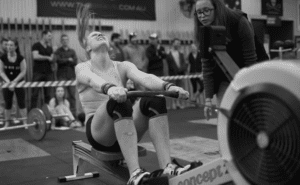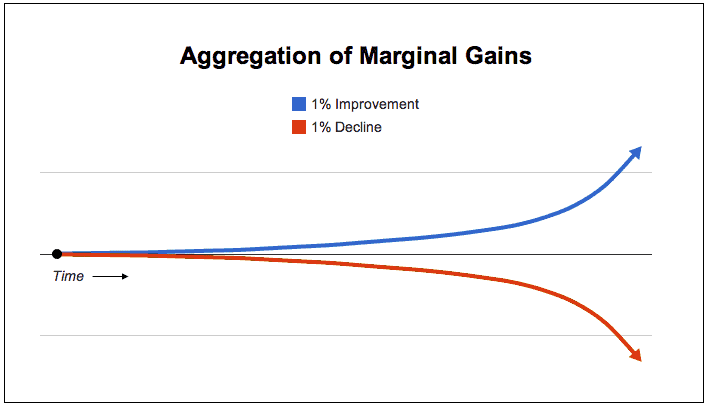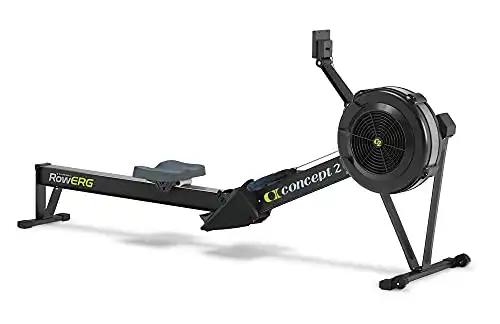2K Erg Test Strategy & Preparation

Thinking of performing a 2k erg test?
Want to know the best tips for strategy and preparation?
I’ve scoured the internet to find the best strategy and preparation tips before completing a 2k row.
If you are reading this article, I assume you know the 2k is the gold standard of rowing races.
It is used to compare yourself to other rowers around the world and gauge how fit you are overall.
The 2k row is a blend of endurance and sprinting, which equates to about 7 minutes of hell!
What can help ease some of this pain is having a 2k erg test plan. Each rower should know exactly what they are going to do on the day of their 2k test!
Their plan should start the moment they wake up to 5 minutes after the finish.
Preparation
The preparation section of this article is not about how to train for a 2k erg test, but is instead a guide about the preparation for the “day of” the test.
Training for a 2k row takes months to prepare for and many long hours on the rowing machine. If you are looking for a 2k training program, there are many great resources on the web which can provide a good outline.
Below I will quickly cover a few things you should incorporate into your 2k training and then dive into how to prepare on the day of your 2k test.
Aggregation of Marginal Gains
The first thing I want to introduce is the “aggregation of marginal gains”. This is the belief that improving many areas by just 1% can add up to remarkable improvements overall.
This belief was adopted by the British Cycling Team who had never won a Tour de France.
After adopting this belief they began making very small improvements to every single area of cycling.
Examples included, better nutrition, more aerodynamic seats, lighter tires, and better training practices.
They then took it a step further and started making small improvements in other areas that effected cycling.
For example, they invested in better pillows to help them sleep better. They researched the best hand sanitizer to make sure they wouldn’t get sick. Even their massage gel was improved to help increase recovery time!

At first, the improvements had very little effect on performance. Then, after making many small improvements over time, the team began to see huge gains.
After just 3 years of making very small improvements to every area of cycling, the British Cycling team had a winner of the Tour De France!
My reason for including this story is to prove how making marginal improvements to every area of rowing can add up to an excellent 2k test time.
Making sure you are eating properly, getting enough rest, stretching, warming up, and having a race strategy, could potentially shave a lot of time off your final score!
So don’t think any one thing is not worth including in your preparation for a 2k row!
Training for 2K Erg Test
Your preparation for a 2k row should begin months before the actual test.
There are many training philosophies on how to train for a 2k. If you are still a few months away, you can do some research on 2k training programs.
When training for a 2k there are a few philosophies I tend to agree with.
First, you must train to increase your lactic acid threshold. Basically, you must be able to row hard and long while being able to clear your muscles of rising lactate.
One great way to do this while training for a 2k row is to perform 1000m intervals. Try performing 3 x 1000m at faster than 2k test pace.
This will help increase your pain tolerance (because it will burn!) and also increase lactic acid threshold.
While interval training is excellent for lactic threshold training, steady-state training is equally as important. A few times a week should be dedicated to longer, slower sessions performed right below your lactate threshold.
You should also be performing a 2k piece on the same day of the week and time of your scheduled 2k erg test.
This will help your body become accustom to rowing 2k’s and ensure there are no surprises on test day.

Another philosophy I agree with is to row 2k’s every week and row them often. Many people will train for 2k’s and barely include them in their training program.
You should be so familiar with rowing a 2k that you can do it with your eyes closed. You should know exactly how to make your transitions and exactly when the pain is going to kick in.
Knowing exactly every meter of the race will help you be best prepared for when the actual test is performed!
Sleep
Start going to sleep at the time you plan to go to bed before your test at least 3 days before.
This will ensure a few things:
- You will be getting good rest 3 days prior to testing
- Your body will be used to falling asleep at this hour
- If you are waking up earlier, your body will also be more accustom to this time
- If you cannot sleep the night before the test, you will have already had 2 good nights of sleep
You don’t want to be tired on race day, so make sure getting enough sleep is a high priority!
Eating
Nutrition is another obvious preparation category that cannot be ignored.
First, make sure you are eating a healthy diet while training. Healthy diets help your perform better and recover faster.
You should also be staying well hydrated at least 2 days before the 2k test. Staying well hydrated ensures your muscles are fully recovered, you won’t cramp, and your body will be able to properly cool itself.
Now, what to eat before a 2k erg test?
First, you should have a good meal 3-4 hours before your set 2k row. Your meal should be high in carbohydrates and ideally something you eat often so your stomach has no surprises.
Fruit and oatmeal is a good choice and even a Cliff Bar can help. I would avoid meats and dairy because they take a long time to digest.

If you choose, you can take any gels or electrolytes anytime up to 1 hour before the test.
There have also been studies and beliefs that drinking beet juice or caffeine can improve athletic performance. If you are really into the 1% marginal gains philosophy, this could be an area you want to research more!
Ideally, you want to be testing on an empty stomach, while still having the proper fuel and hydration. Following these guidelines should help you achieve this.
Stretching
Stretching before any rowing session is important and is a must before a 2k test.
Everyone has their own routine they like and probably a few favorite stretches.
You should focus on some static and dynamic stretches before moving into your warm-up.
Below is a video of some great rowing stretches. This is by no means a “must-follow” routine but it does give some great ideas about different areas to focus on.
Warm-up
Your warm-up is another essential component to a 2k erg test preparation.
Each person will eventually have their own personalized warm-up that works best for them.
This is why doing a lot of 2k tests and races is important because through trial and error you find out what works best.
There are a few 2k warm ups that have become popular over the years but they are by no means necessary.
Some people begin warming up an hour before a test, while others start 20 minutes before. The choice is entirely up to you.
Once on the rowing machine, you can begin by doing 20-30 seconds of arm only rowing, then 20-30 seconds of arm & back rowing, followed by 1 minute of half-slide rowing, and into 3-4 minutes of regular rowing.
After working up a light sweat, a very popular warmup is the “Eddie Fletcher 2K Warm Up Routine”.
It is about 20 minutes of light rowing with a few higher intensity intervals.
Below is a guide of how to do the warmups. It includes the interval time, stroke rate, and split based off your desired 2k time.
You should finishing warming up about 10-15 minutes before the start of your 2K row. Double check your drag factor, footrest setting, and foot straps are all in order.
Now is the time where you need to get mentally prepared.
Pre-Test Mental
Mentally preparing for a 2K test should begin as soon as you start training.
You should work on visualizing your 2k and even doing your pre-test warm up. Sit and think about what it will feel like to start the test, feel tired, sweat, work through the pain, etc..
Studies are beginning to show that mental reps can lead to huge improvements in performance.
If you have a cox, you should go over what you want them to say, when you want them to say it, and how you want them to motivate you.
Do you want them yelling with excitement or keeping you calm and remembering your technique?
If you don’t have a cox, you should have a few pre-selected songs ready to be played. Music can be a big motivating factor and help push you through the hardest part of the test.

2K Erg Test Strategy
Having a good race warmup and preparation is the first key to a good 2k erg test time.
The second is having a good 2k test strategy. Not having a plan is the best way to ensure you will have a poor time.
Pacing
Pacing is the most obvious way to begin forming your 2k row strategy.
You will begin by thinking of a difficult but realistic 2k time you want to achieve. You can then work backwards into different split times and sections.
For example, if you want to row a 7:00 min 2k, you will need to have an average 1:45/500m split.
There are two popular ways to achieve this 1:45/500m average split.
The first is to keep this pace the entire time (even-split). You can even let your average creep up to 1:46 if you know the last 500m you can bring down your split to ~1:43/500m or lower and finish strong.
The second method is to work in a negative split system. This could mean doing the first 500m at 1:48/500m, the second 500m at 1:46/500m, the third 500m at 1:44/500m, and the final 500m at 1:42/500m.
This would average out to a 1:45/500m split overall.
Both techniques have been used with success and it is up to you to experiment with both methods.
You will also need a desired SPM to have during your test. A good SPM for a 1:45/500m is around 28-30, which will creep up towards the finish.
Only practice will tell you the best SPM for your desired split.
Breaking the 2k into Sections
As I briefly mentioned in the last section, breaking the 2k row into sections can help you formulate a better strategy and have a more successful outcome.
The easiest breakdown to start with is 4 x 500m sections.
This can help you begin to think about the start, middle, and end of a rowing race.
However, as you get more experience with a 2k row, you will want to break your race into a few more sections.
The video below does a detailed breakdown of a 2k test race plan. This is the same breakdown I like to use.
Mental Toughness
Having a strong mind is huge when doing your 2k erg test. If you fall apart mentally, your time will seriously blow up.
First, you need to have a good cox or good music. Nothing will help more than these two things.
Second, you need to have a positive mental attitude. You need to keep reminding yourself that everything is going to be fine and it will be over soon.
Don’t let your mind tell you the pain is too much! You tell your mind and body to keep going and fight through the pain! Don’t let negative thoughts creep into your mind!
My favorite thing to think about during a 2K row is called the “40% Rule”. The video below describes the rule.
If fighting through the pain is still difficult, another thing many rowers do to keep their mind off the pain is count strokes.
Try counting 2 sets of 10 without starring at the monitor. Only glanced at the monitor to make sure your split and spm are staying on track.
Next thing you know your are down 250m!
Best 2K Erg Test Video Breakdown
Below is the best video on the internet about the entire process of the 2k erg test strategy. It covers a lot of the same information that I went over above.
However, at the end of this video there is an actual 2k row performed by Cam Nichol. He talks you through the process of the 2k and how he thinks about each section of the row.
Final Thoughts
With the 2K being the “Gold Standard” of rowing races, it is a wise decision to get good at performing them.
It is also a good measure of how fit you are and how you compare to other rowers from around the world.
After completing your 2K, try entering your time in the Concept2 Log Book to see how you compare to other athletes.
Maybe this will motivate you to keep pushing in your next 2k test! It also helps to compare your time to other rowers in your weight class.
If you are serious about rowing and want to start performing more 2k races, you should 100% be rowing on a Concept2.
The world's best-selling rowing machine. Adjustable air resistance & easy storage. Comes with a device holder for your smartphone. You can't go wrong with this rowing machine.
- Best overall rowing machine on the market
- Connects with heart rate monitors
- 5 year frame warranty
- Fan can be too noisy for some
- Not the cheapest
These are the only rowing machines used during indoor rowing competitions and the only models where scores can be entered for world records.
The Concept2 Model D Rower is the best 2k racing rowing machine on the market. The PM5 monitor is extremely accurate and gives you all the data you need to perform your 2k row.
If you have any questions about creating a 2K erg test strategy, please leave them in the comment section below!

Rowing Machine King Founder and Author.


How long between each of the legs in the warm up for the 2,000?
Between the light warm-up and the Eddie Fletcher 2K Warm Up Routine maybe rest :30-2 minutes. The point is to warm up and not be exhausted, so you shouldn’t need a long break.
The 20 minute routine should get your blood flowing, which is why it is recommend to complete 10-15 minutes before a 2K. Just enough time to recover but not cool down.
Thank you for all you detailed information. I really appreciate it.
Rowing Coach Colby
Thank you for the kinds words Brenda! I’m glad you enjoyed the post
im a small novis rower and half coxwain (14 years old) im 5 foot 3 and weigh 48kg i would say im fit but not comapired to most rowers, after a long night at about midnight i managed a 2k with an avrage of 2:30 per 500 and found it tiaring but i know i can do much better. im thinking of an avrage of between 2:20 and 2:00 per 500m but im not sure and i dont want to fly and burn
Hi Stella – that is a really great time! The more you practice, the more you are going to improve.
I’m very confident you will be able to achieve your goal and then go on to set even faster times!!
Hey Coach, I’m a junior in high school and have a 2k test in essentially less than 48 hours. Im about 6’2″ 180 lbs and Im really shooting for sub 7′. My best 2k on the books was done awhile back in early December of 2019 at a 1:47 or so average. Any last minute tips before I walk into the test.
Should I exercise at all the day before test day? What should I eat the day before and the day of (I will be in school that day)?
-Anything would help.
Hey Marcus! I hope this message doesn’t come too late!
I think most of the work is done in the preparation so you should be good to go! I wouldn’t exercise heavily the day before. Maybe just a light row to get the blood pumping but nothing that is going to require your body to need recovery time.
I wouldn’t eat anything within a 1-2 hours of the test and I would eat easily digestible foods. Stay away from dairy products and eat a light meal with good carbs (maybe some pasta). Stay hydrated and you should be ready to go! Of course select you’re favorite song as that always helps :)
Hello, I have a 2K in three days and I was wondering about my race plan and a few other things
I’m a novice, and the last 2K i did about 6 months ago was a 8:32.2 so I was going to try to shoot for an 8:29.0 or lower, but I have a hard time in the middle of the race. Would you reccomend taking a power 10 every 500 or at the 1000 meter mark, and would a protein bar be a good thing to eat before the race (I eat them often so it should be normal)
Hi Sofia – thank you for reaching out! I personally don’t do a power 10 during a 2K but I’m also not an expert! I think doing the negative split system is the best and the video in the post is really the best plan/strategy.
The middle of the set is notoriously hard and it takes real mental toughness to power through! I think going into the 2K with a plan on what splits to hit for each 500m section is the smartest way to approach it.
A protein bar and staying hydrated will be fine!
I’ve got a 2k erg race tomorrow and I am currently completing it in 8:50 with an average of 2:18/500m. How can I improve this? And how can I just keep going even when I’m so tired out?
Hi Grace – thanks for reaching out! I would work with your coach to create a training plan to improve your time.
In the short term, you just have to realize that it’s a lot of mental toughness! You have to learn to fight through the pain. I always like getting pumped up by some music and having 2-3 good songs to play during the 2K
This is really helpful. I’m a senior in high school with a 7.52.1 (I’m an open weight woman, 5’10 and 165). COVID has hit me really hard mentally and I just wanna get into the 7:40s before university (which I’m going to on a rowing scholarship). do you have any advice for the mental aspect? or any personal favourites in regards to workouts to help improve? I will for sure be saving this article… thank you :)
Hi Arden – thanks for reaching out! The mental aspect is a hard one to tackle because everyone is different. When doing a 2K, I always make sure to have good music playing. I usually like to start with a song that keeps my mind occupied and then the 2nd song to be one that really pumps me up.
If you’re interested in developing mental toughness I would watch some YouTube videos on “developing mental toughness”. I’ve always liked David Goggins videos and his book “Can’t Hurt Me” is great – if you like his style :)
I read this article before every 2k test. I’ve been a rower since 8th grade and am now a Sophomore in College. I have a test this upcoming Monday and am fairly confident in myself, but still felt a need to read this article. Hopefully you’ll help me PR. Thanks for such great advice :)
Hi Sam – I’m glad you found the post helpful and I hope you hit that PR!!
Good luck and LET’s GOOOOO!!!!!!
Hi Edwin, The hardest part of the neg split race strategy is the 3rd 500 when you’re tired, the finish is still a long way off and you have to go faster then the previous 500.
Im very close to breaking 7:30 but just cant seem to get there. 1:54, 1:53, 1:52, 1:51 would do it but I slow down in the 3rd 500 and cant sprint fast enough in the last 200 to make up for it.
I have also tried 1:52, 1:53, 1:54, 1:51 which has worked better.
In your remarks you advise either level or neg – why don’t you feel the second strategy I dexribed is a good one?
Hi Roy – thanks for reaching out! I’m certainly no expert and I would say do what works for you. The strategies I listed are what a lot of other rowers recommend but I definitely encourage people to experiment. If that’s what works, I say go for it!
Hi! I think your post is great! I’m a middle school rower and do you have any tips for anxiety? I know an important thing going into a 2k is mentality but I’m pretty weak on that factor. I’m doing crash bs on Sunday and I’ve been thinking about it for a week to the point where I can’t even sleep. I get so nervous and I think negatively. I not that great of a rower and my splits are pretty bad, but I still would like to go into the race with positivity
Thank you!
Thanks for reaching out and sorry for the late reply! I hope you crush the crash bs!!
In regards to anxiety, everyone is different. I think the best thing to combat anxiety is going into an event knowing you did everything you could to prepare for the event. If you trained hard, the only thing left to do is show up and perform well. Everyone has different ways to prepare before an event, some people enjoy relaxing and listening to music to take their mind of the event while others like listening to music to pump themselves up.
Being nervous is completely normal but knowing you did everything you could to prepare well for the race is going to help relieve anxiety the most.
Thank you for replying!!!
I went today and finally broke ten minutes and I’m ecstatic, but I also got dead last.
Your mindset is amazing and I wish I had a need to keep getting better as great as yours, my anxiety and insomnia stems from my panic and worry that I would faill, which really controls more aspects of my life than I’d like to admit。 I’m working on changing that and thinking as every race as a opportunity rather then a burden. The thing I tried That helped me the most is to not think of something as a race, rather something to just row on. I dread 2ks way too much which isn’t good. I need a mindset like “ who cares if I fail, there’s always next time!” Hopefully this gets better over time!
That’s awesome to hear and I think you have a great mindset! Keep learning, keep growing, and you will continue to see improvement!
Hi, this is very helpful, so thank you.
I trained for six months and rowed a 6.58 on my 39th birthday, then only dabbled for years while my back was bad. Now 53, I started back this year with a 7.48, and am now down to 7.10. I’d love to row sub 7 again.
I achieved the 7.10 by dropping from 6 to 5 resistance. Reading this, I’m thinking focusing on 28-30spm would be good, with whatever resistance is needed to maintain an even split. fwiw, I start with 15 quarter and half strokes, so the first 200m are well under 1.45. It’s that mental battle when the split tips over 1.46 that’s tough.
Hi Paul – that’s great to hear! Going sub 7 is impressive and that last 500m is no joke!
Hey coach. Im a freshman in high school right now and im super conscious about my 2k. Im about 5’8 and 130 lbs. i havent taken a 2k in a year or two cause im too scared i haven’t made progress. Ive done 5ks before. My best at around 21:55. Im always comparing myself to other freshman and i think im not good enough. Any help would be incredible.
Hi Deven – thanks for reaching out! The only way you are going to get better at something is by practicing. If you want to improve your 2K time, you need to make a plan and stick to it. Being scared is completely normal and it really boils down to either feeling underprepared or being fearful of failing.
The “feeling underprepared” part is easy to fix – you have to go into a 2K feeling like you did everything you could to prepare. This means working out every day, following the plan you put together, and knowing you put in the work. The “fear of failing” aspect is tough because everyone feels this at some point. You’re just going to have to enjoy the process and realize that even if you don’t perform well, it just gives you a better idea of how to improve moving forward. Everyone fails sometimes, that’s just part of life. Learning to deal with failure is an important skill and it’s about how you rebound and come back better. I would recommend checking out some Youtube videos about great athletes who have failed – Kobe Bryant and Michael Jordan have some great videos made about their failures.
Hi Coach,
I need to get my 2k down from 8:51 to sub 8:40 in just under three weeks. Do you have any tips?
I’m a 5’9.5, 55kg, WJ15 and I can do 2 x 1k at 2.09 and 2.11 (with a 5 min break in-between) so I think I should just be able to do it.
Hi Sophia – I don’t have any tricks up my sleeves but I would say to make sure you are well-rested and go into your test with a positive mental attitude! You will do great!
Hi I am 75+ indoor rower with some NZ records, I have Masters Games coming up in October so plenty of time to train. I normally raced by trying to hold a steady rate throughout but have found in my last 2 or 3 races I have missed my times by a second or two. Wondering what your thoughts would be if at my age a Negative split approach may be better.
Garry
Hi Garry – thank you for reaching out! I think if you hold some NZ records you would know better than me!! I always like doing negative splits but I think it’s a personal preference. If you have some time to train it might be worth a go. Here is a Wiki page of some notable runners who use negative splits: https://en.wikipedia.org/wiki/Negative_split
I’d love to hear if you try it out!